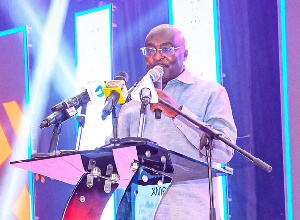Business News of Thursday, 14 October 2021
Source: thebftonline.com
GNPC to explore all avenues to retrieve US$50 million debt
The Ghana National Petroleum Corporation (GNPC) has indicated it will explore all avenues to retrieve the US$50 million it advanced to the Ministry of Finance (MoF) in 2014, the Public Interest and Accountability Committee (PIAC) report has revealed.
The US$50million was advanced to the Ministry of Finance for construction of Western Corridor roads in the Atuabo Gas Processing Plant enclave, and was expected to have been repaid in three months – but seven years down the line, the debt is still locked-up.
It appears from the 2021 semi-annual PIAC report that the finance ministry considers the money paid – on the grounds that government has not retained GNPC’s flows thus far with a view to offsetting the US$50 million loan; thereby directing the national petroleum company to expunge the debt from its books in 2018.
But the explanation does not sit well with Parliament, as the PIAC report says the legislature has directed that the Ministry of Finance must pay the money to GNPC.
Following this, the report adds, the Ministry of Energy in February 2021 wrote to the finance ministry, requesting the minister, Ken Ofori-Atta, to intervene and assist in the settlement of debt owed GNPC by government and other energy sector agencies. But in a surprise turn of events, the finance ministry, according to PIAC, says it has not received any such letter.
A breach of EITI standards
The development is a breach of the Extractive Industries Transparent Initiative (EITI), to which Ghana has been is a signatory since 2003. The EITI sets the global standard to promote open and accountable management of oil, gas and mineral resources.
The EITI Requirement 6.2 provides that Ghana must ensure the EITI Multi-stakeholder Group (MSG) agrees a definition of quasi-fiscal expenditures in accordance with the IMF’s definition and discuss this [the US$50 million debt] with GNPC, Ministry of Finance and the PIAC in order to ensure there is a common understanding of the nature of these expenses; and that possible quasi-fiscal expenditures are comprehensively and consistently covered in disclosures by the GNPC, government, PIAC or Ghana EITI.
Besides the effect this debt will have on GNPC’s finances, government’s inability to deal with this and similar issues has the potential to affect Ghana’s standing internationally in the governance and management of its extractive sector, the PIAC report said.











